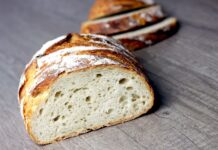How to make a pet-safe Christmas feast for your cat or dog — and the festive foods your pet should never eat
Turkey
Turkey is the main event in many people’s Christmas dinner and is one of the elements that you can definitely give to your pets, should there be any leftovers. Turkey contains lots of protein and B vitamins that are great for both cats and dogs, especially as cats are obligate carnivores and need to eat meat in order for their digestive systems to remain healthy.
That said, there are a few things to bear in mind when cooking your turkey. Firstly, you should cook your turkey as plainly as possible, as many of the seasonings that we usually add to meat can cause digestive issues for animals. So, if you want to give your pet some turkey, prepare it plainly and then add your seasonings later at the table. You should also remove the skin before serving as too much of this can cause digestive problems for both dogs and cats.
Salmon
Although salmon isn’t as traditional as turkey, it’s often an popular feature of many people’s Christmas dinners. You might be serving it as a starter or as part of your overall spread, but either way it is suitable for both cats and dogs. Salmon also contains lots of protein and omega 3s, so it offers a lot of nutritional benefits. Added to this, it’s quite a treat, especially for cats, so it will make you very popular with your pet!
Remember not to feed your dog or cat raw salmon. This includes smoked salmon too. Although humans cat eat raw salmon, it’s too risky for pets as presents a risk of bacterial infections and parasites that may be contained within the fish. With this in mind, offer them plain cooked salmon as you would with turkey.
Vegetables
When it comes to the side dishes of a Christmas spread, there is some variation between dogs and cats. Cats unfortunately can’t partake in this part of the festivities, because their digestive systems aren’t built to process vegetables. Dogs on the other hand can eat most vegetables that you’ll be including in your dinner, so it’s worth offering them some alongside their turkey or salmon leftovers.
Vegetables that dogs can eat include carrots, potatoes, sprouts, parsnips, cabbage, and peas. They should be cooked simply and without seasoning just as with turkey and salmon, and seasoning should be added after you’ve given your dog their portion. Butter, salt, pepper and other additions that we use to bring out the flavour of our vegetables are too much for the canine digestive system which is often more delicate than that of your human guests.
Fruit
While dogs can’t eat traditional Christmas pudding or Christmas cake like we can (due to the dried fruit content), they can enjoy a range of fresh fruits including apples, blueberries or bananas, which are all full of important nutrients as well as being a tasty snack. Dogs can also eat cranberries and even cranberry sauce, so this is a great option for giving them a fruit that’s more festive.
Remember though that if you’re buying your cranberry sauce instead of making it yourself, it might not be safe for your pooch. A homemade sugar-free cranberry sauce is fine for your dog, but a store-bought cranberry sauce might contain high amounts of sugar. Cats will have to skip the dessert course unfortunately, however they should be happy enough with their turkey or salmon anyway!
Making a pet-safe Christmas dinner
The ingredients you’ll need for your pet-safe Christmas dinner will depend on whether you’re making a meal for a dog or cat. For a cat, you’ll just need to portion out some well-cooked meat or fish, and ensure it has no seasonings or extras added to it.
For a dog, you’ll need to take two slices of turkey or salmon and add a portion of vegetables — two pieces of potato, two sprouts and a couple of parsnips and carrots should do the trick. For large dogs, you can add a little more, and for very small dogs or puppies you can halve these portions. Then, you can add a cup of blueberries, apple, banana or cranberries for dessert. If you have homemade cranberry sauce without sugar, you might add some of this as a wet element on your dog’s turkey too!
Foods unsafe for pets
It’s worth noting that there are lots of foods that we eat at Christmas that are unsuitable for our dogs and cats. As mentioned earlier Cats are obligate carnivores, meaning that they can’t eat any Christmas food except meat or fish. It might surprise you to know that although cats are often given milk or cream, most felines are lactose intolerant and shouldn’t actually be consuming dairy. Dogs are the same, and should be kept away from rich dairy items on the festive table.
Dogs should also be kept away from chocolate, as it is poisonous to them. The same goes for a range of other tempting Christmas sweets and crisps. Even if they’re not strictly unsafe for dogs, the sugar, fat or salt content can upset their stomachs. Onions, garlic and anything from the allium family may also cause sickness in dogs so try to avoid these too. Finally, certain nuts like macadamia nuts for example are also unsuitable for dogs, so should be avoided.
Remember to stick to the foods that your dog or cat can safely eat, and involve them in the Christmas dinner using foods that are healthy for them.
Credit: https://petrange.co.uk/about.
Help keep news FREE for our readers
Supporting your local community newspaper/online news outlet is crucial now more than ever. If you believe in independent journalism, then consider making a valuable contribution by making a one-time or monthly donation. We operate in rural areas where providing unbiased news can be challenging. Read More About Supporting The West Wales Chronicle

























